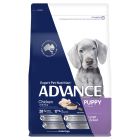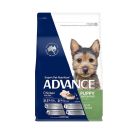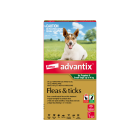
Be Prepared
When adding a new puppy to your home, the first step you should take is to purchase all of the basic supplies you will need, such as collars, leads, bowls, brushes, combs, and nail clippers before your new puppy arrives. The collar and lead should be lightweight, durable, and appropriate size. Remember, your puppy will most likely chew on them at first, so they need to withstand this abuse. The bowls you select should be heavy and have a broad base to prevent them from being knocked over and making a mess.
The brushes and combs you select should be appropriate for your puppy's size and fur. You might need to buy new brushes and combs as your puppy grows and their fur changes. You might also need a special brush or comb to use during winter when your puppy's coat thickens. Be sure to start a regular brushing routine right away to prevent problems with brushing in the future.
Your nail clippers also might need to change if you choose to purchase smaller ones to use on your puppy, particularly if it will grow into a large dog. It is, however, okay to use larger nail clippers on a puppy, so you will not need to buy a new pair down the road.
You can view our selection of brushes, combs, and nail clippers on Dr Carl.
Giving Your Puppy a Bed
On top of making sure you have the necessary supplies, you also want to make your puppy feel welcome by providing it with a bed and a place of its own. You need to have this place set up before the puppy comes home to help it adjust. Remember, the puppy is probably used to sleeping with its brothers, sisters, and mom, so being alone for the first time might be frightening. Make sure the bed is warm and cozy, and easy to access. You should also never allow your puppy to get used to sleeping with you because this habit is difficult to break. You will regret letting it sleep with you when it grows into a sizeable bed-hogging dog! Instead, choose an excellent kennel, dog bed, or basket for your puppy.
Feeding Your Puppy
Of course, proper nutrition is essential to a growing puppy. Ideally, it would help if you fed your puppy the same food it was receiving from its previous owner because puppies can have difficulty adjusting to new foods. If you want to change to different food, be sure to do so gradually. If the food is not high quality, your puppy can have difficulty with its bones and overall growth.
A puppy that is less than eight weeks old should eat four times per day. Once the puppy reaches 16 weeks of age, you can reduce feeding to twice per day until it reaches six months. From that point forward, you should only need to feed your dog once per day.
As far as nutritional value goes, dry foods are better for your pet than wet foods. Some puppies, however, can have difficulty eating dry food at first. If this is the case, you can soften dry food by soaking it in water. You should never soak it in milk because it can cause diarrhea, and it does not add to the nutritional value of the food.
Raw bones, such as chicken necks and chicken wings, can also be fed to your puppy. These will help your puppy's teeth to stay healthy and provide a good release for your puppy's natural inclination to chew. Chewing bones also help loosen your puppy's teeth, which will help when the new teeth start growing in. Chew toys can also be helpful in this process.



